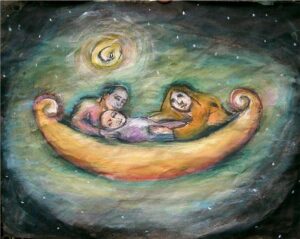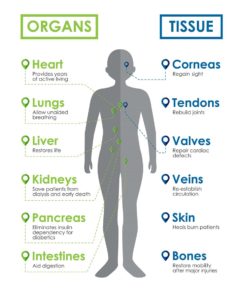 Dollars
Dollars
Ah, money – that little paper or shiny metal that keeps everything moving, even if it feels like it’s always slipping through your fingers when you need it most. In Canada, hospital visits are free (yay!), but everything else – from medications, to the cost of dying and funeral arrangements – can feel like you’re suddenly signed up for a VIP package you didn’t ask for. The extras? They sure add up fast. But don’t panic – we’ve got you covered with a sliding scale for our service fees because no one should have to choose between dignity and their bank balance. Pay what you can, when you can! We believe everyone deserves access to compassionate, respectful end-of-life services, regardless of how many “Dollars” are sitting in the bank. So, we offer a sliding scale based on the household income of the person who has died and/or the person responsible for payment at the time of death. This way, we can ensure families of all incomes can make dignified choices during such a challenging time. And while we’re on the subject of “Dollars,” let’s also take a moment to appreciate the real treasure: our service providers. These amazing folks pour their time, energy, and expertise into making this transition as smooth and peaceful as possible. They give their hearts at life’s final threshold —honour their gift by giving what you can.
Death Doula
 Death Doulas: the only people who can make both existential dread and funeral planning feel like a warm hug. Think of us as the sherpas of the afterlife trek—minus the oxygen tanks but fully stocked with tissues, tea, and an uncanny ability to discuss mortality over muffins. We’re not grim reapers (too dramatic) or funeral directors (too formal); we’re the compassionate, candle-holding, plan-making, deep-listening companions who ensure you exit with style, grace, and maybe even a playlist that doesn’t include “My Heart Will Go On.” Whether it’s holding space for final wishes, guiding loved ones through post-death chaos, or helping you decide between a biodegradable burial or a Viking-style sendoff (local bylaws permitting), we’ve got you covered.
Death Doulas: the only people who can make both existential dread and funeral planning feel like a warm hug. Think of us as the sherpas of the afterlife trek—minus the oxygen tanks but fully stocked with tissues, tea, and an uncanny ability to discuss mortality over muffins. We’re not grim reapers (too dramatic) or funeral directors (too formal); we’re the compassionate, candle-holding, plan-making, deep-listening companions who ensure you exit with style, grace, and maybe even a playlist that doesn’t include “My Heart Will Go On.” Whether it’s holding space for final wishes, guiding loved ones through post-death chaos, or helping you decide between a biodegradable burial or a Viking-style sendoff (local bylaws permitting), we’ve got you covered.
DIAPERS

Here is a thing to consider… you in diapers again. When people are contemplating their end-of-life plans (and there aren’t enough of you doing that) a common marker is whether you can manage to take yourself to the bathroom or not. Sometimes folks say when the day comes that they can’t manage their own ablutions, they will sign out. However, when that day comes, they usually don’t choose to check out.
So adult diapers, good that someone thought of that. For a variety of reasons adults need this product for more flexibility in their lives. Most of us will end up using adult diapers. After we go through rejecting, secrecy, humiliation, adjusting, surrendering, may we find adapting, ease and gratitude. Maybe give you and diapers some thought. Oh, and please consider the eco-friendly reusable types. Mother earth doesn’t need her rich soil full of diapers…. Better off to poo directly into the garden.
Many things from the start of life years visit us again in the end of life years. Vulnerability is warriorship.
DONATION – Organ and Tissue

On 18 January 2021, the law for organ and tissue donation changed in Nova Scotia. The Nova Scotia Human Organ and Tissue Donation Act will make it possible for more Nova Scotians to donate their organs and tissues.
When you die expectedly your body becomes part of your estate and your executor/family is legally responsible for and required to see to your disposition.
If you die unexpectedly the medical examiner has the right to your body for as long as they need, before handing to the executor/family for disposition.
Who will have jurisdiction over the corpse with presumed tissue and organ donation?
What condition will the body be in after the recovery of organs and tissue?
If a family wish to reclaim their deceased for home deathcaring, rituals and a green burial will the medical team be sure not to perform any toxic procedures and suture the body appropriately?
Organ and Tissue Donation Info NS
DENIAL
 Spoiler Alert – you will die.
Spoiler Alert – you will die.
In 1973 Ernest Becker won the Pulitzer Prize for The Denial of Death. We’ve been denying for a while. The toss-up seems to be with the dual nature of our physical selves and our symbolic selves. And that comes down too, here we are… what does it mean? The search for meaning or the true nature of reality is good/absolute. It awakens the mind and that, my friends, is a connection to the present, which is wisdom.
They say our life flashes before our mind’s eye in our final days. Will yours be all scared and in denial about the fact that you will die? Or might we find meaning which has us present in our everyday lives?… with whatever is?
Why exactly are we so frightened of death that we avoid looking at it altogether? Or worse, we take all manner of measures to get more “dying days”.
Somewhere, deep down, we know we cannot avoid facing dying and death forever. Nothing is permanent and enduring.
When you are in denial, you’re trying to protect yourself by refusing to accept the truth about mortality.
When you are in denial, you’re trying to protect yourself by refusing to accept the truth about your dying and death that is happening. Refusing to acknowledge mortality is a way of coping with fear, stress, painful thoughts, conflict, threatening information and anxiety. You can be in denial about anything that makes you feel vulnerable or threatens your sense of control, such as dying. You can be in denial about something happening to you or to someone else.
When you’re in denial, you:
~ Will not acknowledge a difficult situation
~ Try not to face the facts
~ Downplay possible consequences of the matter.
Sometimes it seems as if the only real activity we are engaged in is closing our eyes to the truest fact about life: No one makes it out alive.